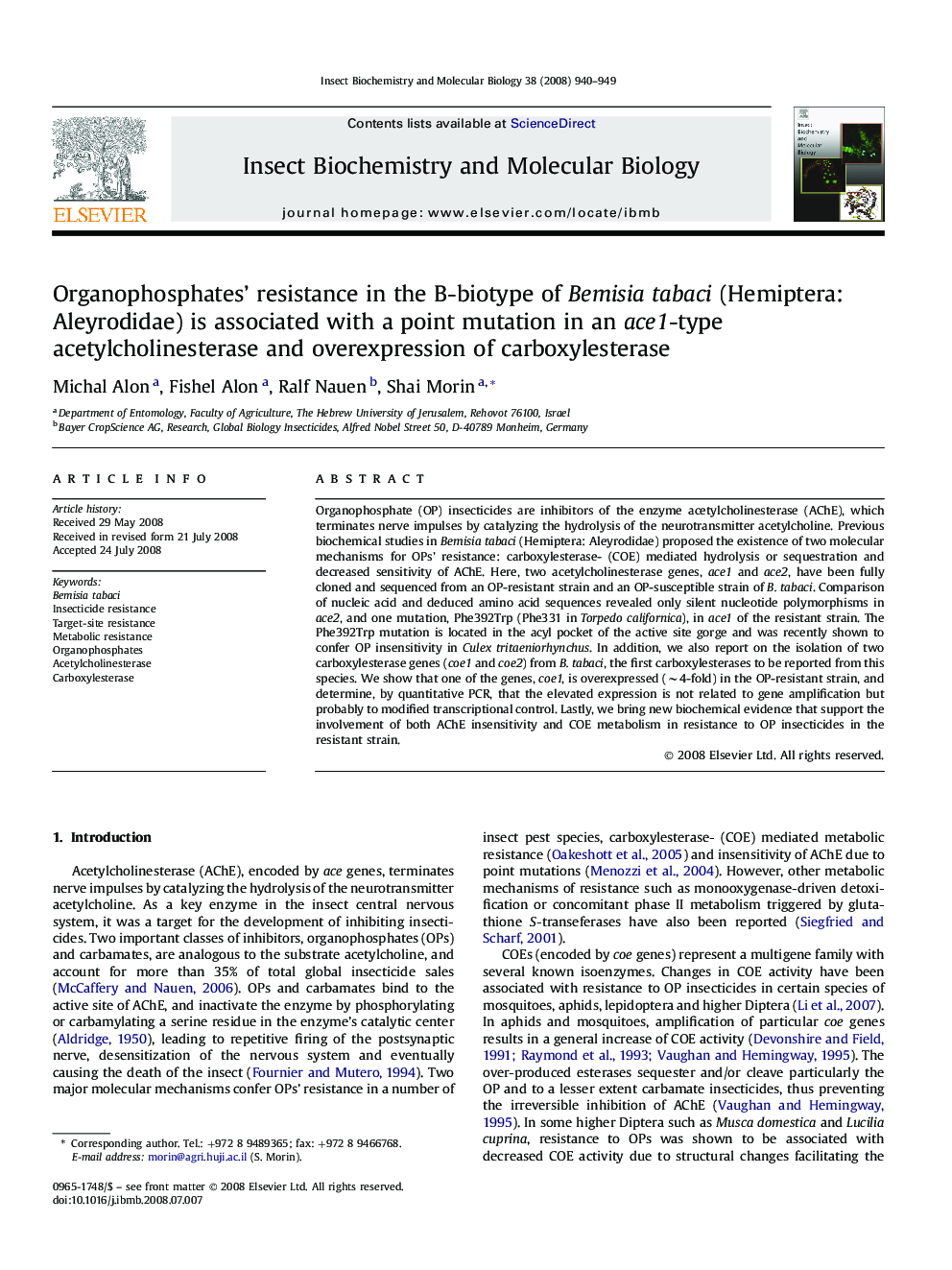| Article ID | Journal | Published Year | Pages | File Type |
|---|---|---|---|---|
| 1982824 | Insect Biochemistry and Molecular Biology | 2008 | 10 Pages |
Organophosphate (OP) insecticides are inhibitors of the enzyme acetylcholinesterase (AChE), which terminates nerve impulses by catalyzing the hydrolysis of the neurotransmitter acetylcholine. Previous biochemical studies in Bemisia tabaci (Hemiptera: Aleyrodidae) proposed the existence of two molecular mechanisms for OPs' resistance: carboxylesterase- (COE) mediated hydrolysis or sequestration and decreased sensitivity of AChE. Here, two acetylcholinesterase genes, ace1 and ace2, have been fully cloned and sequenced from an OP-resistant strain and an OP-susceptible strain of B. tabaci. Comparison of nucleic acid and deduced amino acid sequences revealed only silent nucleotide polymorphisms in ace2, and one mutation, Phe392Trp (Phe331 in Torpedo californica), in ace1 of the resistant strain. The Phe392Trp mutation is located in the acyl pocket of the active site gorge and was recently shown to confer OP insensitivity in Culex tritaeniorhynchus. In addition, we also report on the isolation of two carboxylesterase genes (coe1 and coe2) from B. tabaci, the first carboxylesterases to be reported from this species. We show that one of the genes, coe1, is overexpressed (∼4-fold) in the OP-resistant strain, and determine, by quantitative PCR, that the elevated expression is not related to gene amplification but probably to modified transcriptional control. Lastly, we bring new biochemical evidence that support the involvement of both AChE insensitivity and COE metabolism in resistance to OP insecticides in the resistant strain.
